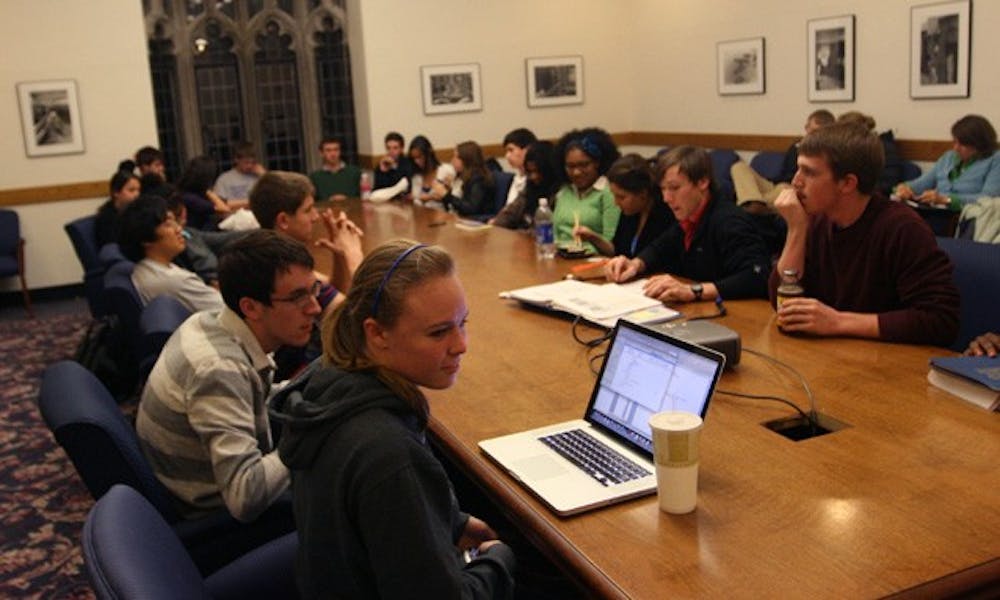Campus Council representatives addressed their primary concerns with the new house model for West and Central campuses in discussions with administrators at the group’s meeting Thursday.
Since the University decided to move from its current quad plan to the house model by 2012, administrators have been in conversation with Campus Council. Donna Lisker, associate vice provost for undergraduate education, and Joe Gonzalez, associate dean for Residence Life and Housing Services, co-chair the committee heading the transition.
“We have what we know, we can tell you what we’re still working on and lastly we have unaddressed questions,” Lisker said. “This is the first third of the process and there are a lot of unanswered questions.”
Because the University deemed an early ’90s house model a failure, issues must be ironed out for future success, Gonzalez said.
Some students were concerned that in order for the plan work, a significant number of sophomores would need to live on Central Campus, which would require removing the perceived negative stigma associated with the campus. A council representative and Central resident pointed out that policies that “pushed” returning study-abroad juniors to Central perpetuate the idea that it is a lesser campus than West.
Leslie Andriani, a junior, said that both campuses will require a diverse yet identifiable community. In order to achieve this, she proposed a system similar to the one that determined freshman housing, in which students are placed together based on their responses to about 13 lifestyle questions.
But senior Johnathan Pryor, vice president and policy chair, introduced a potential issue with this model.
“If there is a house that has a personality that I identify with, then I would rather pick it myself than have a computer pick for me,” Pryor said.
Furthermore, people may be tempted to lie on these types of surveys about key information such as smoking or drinking, in accordance with knowledge about houses they wish to get into, said Jeremy Ruch, a sophomore and public relations chair.
Another fear was that this sort of system would foster exclusive houses with individual identities similar to greek life.
“We don’t want this to be a campus-wide fraternity and sorority recruitment,” Lisker said.
At the end of the meeting, Gonzales admitted there are several details to be worked out. Lisker said she hopes, however, that by the Spring they will have enough questions answered to hand out forms to East, West and Central campus students to obtain their input as well.
In other business:
After surveying members and leaders of the three selective living groups on Central—Pi Kappa Phi fraternity, the Panhellenic Association, and Ubuntu—the council passed legislation outlining future policies for selective living groups on Central Campus. The policies will provide groups with a clear list of amenities as well as renovate common rooms and bathrooms to improve safety.
The council also voted to block out a section of Central Campus for these groups.
Get The Chronicle straight to your inbox
Signup for our weekly newsletter. Cancel at any time.

